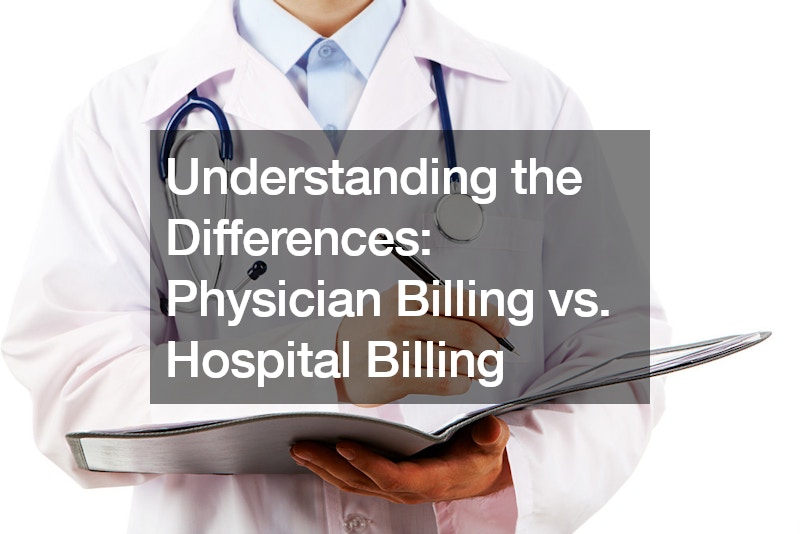
Navigating the complexities of the healthcare billing system can be challenging for both patients and providers. Two primary types of billing in healthcare are physician billing and hospital billing. While they may seem similar, they differ in processes, coding, and payments. Understanding these differences is crucial for efficiently managing healthcare finances and ensuring accurate billing.
Physician Billing
Physician billing, or professional billing, refers to billing for services provided by individual healthcare providers. This includes doctors, nurse practitioners, and other medical professionals who deliver direct patient care. Physician billing is typically done using the CMS-1500 form, a standard claim form used by non-institutional providers to bill for services rendered.
The process of physician billing involves coding the services provided using Current Procedural Terminology (CPT) codes and International Classification of Diseases (ICD) codes. CPT codes describe the medical, surgical, and diagnostic services, while ICD codes classify diseases and health conditions. Accurate coding is essential to ensure that claims are processed correctly and providers receive appropriate reimbursement.
Physician billing also involves negotiating with insurance companies to approve and pay claims. This can be time-consuming, as insurers often require detailed documentation and may deny claims for various reasons, such as insufficient documentation or lack of medical necessity. As a result, medical practices often employ billing specialists trained in handling the intricacies of physician billing.
Hospital Billing
Hospital billing, or institutional billing, refers to billing for services provided by hospitals and other healthcare facilities. This includes inpatient and outpatient services, such as surgeries, diagnostic tests, and emergency room visits. Hospital billing uses the UB-04 form, a standardized claim form institutional providers use to bill for services.
The coding for hospital billing is more complex than physician billing. It involves using ICD codes, Healthcare Common Procedure Coding System (HCPCS) codes, and revenue codes. These codes provide detailed information about the services, resources, and costs associated with patient care. Accurate coding and documentation are critical for ensuring hospitals receive appropriate service reimbursement.
Hospital billing also involves working with insurance companies and government programs like Medicare and Medicaid. The process can be challenging due to the volume of claims and the complexity of hospital services. Hospitals often have dedicated billing departments or outsource their billing to third-party companies to manage the process efficiently.
Conclusion
Both physician and hospital billing are essential components of the healthcare system, each with its own challenges and requirements. Understanding the differences between these two types of billing is crucial for healthcare providers to ensure accurate and timely reimbursement. By mastering the intricacies of physician and hospital billing, providers can improve their financial management and focus more on delivering quality patient care.
.



